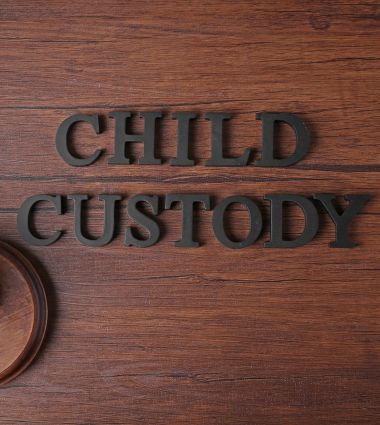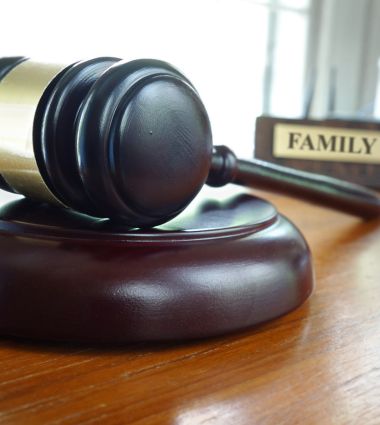How Canada Recognizes Foreign Divorce
Imagine you’ve just moved to Canada, bringing not just your belongings but also the weight of a divorce from another country. As you settle in, a big question pops up —"Will Canada recognize my divorce?" This isn’t just a small detail. It can affect everything from remarrying to dividing property or making other legal arrangements.
It can feel like you’re walking into unfamiliar territory. Canada has its own set of rules when it comes to foreign divorces, and knowing them can save you from problems later on. For example, if your divorce isn't recognized here, you might run into roadblocks that prevent you from moving forward with your life — whether that’s getting remarried or sorting out your finances.
In this blog, we’ll break down how Canada treats foreign divorces and what to expect when it comes to legal requirements. We’ll also talk about why having a family lawyer in your corner can make all the difference, helping you through the process and doing everything, so your rights are protected.
The Basics of Foreign Divorce Recognition in Canada
Let’s say you were divorced outside of Canada and have now moved here. How does Canada treat that divorce? The answer isn’t as tricky as it might seem at first. In legal terms, a “foreign divorce” is any divorce that takes place outside of Canada, and whether it’s recognized here depends on a few clear rules.
The Divorce Act, particularly Section 22, is the foundation for this process. Here’s what matters most:
- The Divorce is Valid Where it Happened: If the country where you got divorced recognizes your divorce as legal, Canada will likely accept it too.
- Residency Requirement: Either you or your former spouse must have lived in that country for at least one year before the divorce was finalized.
For example, if you were living in Germany when your divorce was granted and the German courts approved it, Canada will typically consider it valid. But if you were divorced in a place where neither of you had any real connection, things might get complicated.

Common Challenges in Foreign Divorce Recognition
While the rules sound straightforward, getting a foreign divorce recognized in Canada isn’t always smooth sailing. Here are some common issues people face:
Paperwork Problems
Missing documents or errors in your divorce papers can slow things down. If the papers are in another language or don’t include details like court approval, Canadian officials might struggle to confirm if your divorce is legit. Imagine trying to explain a legal document from a country where the legal system works very differently — that’s where issues can crop up.
Legal System Mismatches
Different countries have different divorce laws, and not all of them line up with Canada’s. For example, in some countries, a man can divorce his wife simply by saying "I divorce you" three times. Canada doesn’t recognize divorces like that because they don’t meet the legal standards here.
Religious Divorces
Divorces granted through religious customs without involvement from the government are another sticking point. These might hold weight in your home country but often don’t count in Canada.
Take Sarah and Ali, for instance. They got a religious divorce in their home country without filing anything officially. When they moved to Ontario, they learned their divorce wasn’t valid here. That meant they couldn’t remarry or settle financial matters until they resolved things through the Canadian courts.
Implications of Non-Recognition
Imagine thinking you’re legally single, ready to move on with your life, only to find out Canada disagrees. It’s a bit like being caught in a legal twilight zone where things don’t quite add up. Let’s look at how this can play out in real life and why it’s such a big deal.
Legal Status Confusion
You might believe you’re free to remarry, but Canadian law may look at it differently. Without recognition of your foreign divorce, your marital status in Canada doesn’t change. This can cause serious roadblocks if you’re planning a wedding or even trying to handle basic legal paperwork. For example, you could apply for a marriage license in Ontario, only to be told you’re still legally married to someone else.
Property Headaches
If your divorce isn’t recognized here, sorting out property can be a nightmare. Say you’re trying to sell a house in Toronto that you once shared with your ex. If your foreign divorce isn’t valid in Canada, your ex might still legally own half, even if you’ve been separated for years. This creates endless complications, from needing their approval for the sale to potential disputes over how much of the property each of you owns.
Custody and Child Support Issues
Family matters like child custody and support become even more complicated without a recognized divorce. Imagine Mike, who lives in Ontario but got divorced in Greece. Because Canada doesn’t recognize his Greek divorce, his custody arrangement is stuck in limbo. He’s also facing legal hurdles trying to set up child support payments because, technically, his divorce is not official here.
Let’s say Sarah moved to Canada after her divorce in another country. She thought everything was sorted until she tried to remarry. Suddenly, she’s told her divorce doesn’t count in Canada. Not only can she not get remarried, but she’s also facing trouble selling her shared property and figuring out custody arrangements for her kids. These kinds of situations aren’t just inconvenient — they’re emotionally exhausting and can derail important plans.
Role of Family and Divorce Lawyers in the Process
Going through a divorce is tough, no matter where it happens. But when your divorce took place in another country, things can get even more complicated. This is where having a family lawyer in Toronto, Ontario, becomes your biggest bet. They’re like guides through the tricky legal maze, making sure you know where to step and how to avoid any trouble.
Checking Your Paperwork
The first thing a family lawyer does is go through your foreign divorce documents carefully. They’re looking for anything that could cause problems under Canadian law. For example, let’s say your divorce papers from another country are written in a language you don’t understand. Or maybe they’re missing important details about where and when the divorce happened. Your lawyer can translate, verify, and sort out these issues so you don’t hit any roadblocks.
Going to Court (If Needed)
Sometimes, Canadian courts need to officially recognize your foreign divorce. This might happen if there’s a dispute about whether your divorce meets Canada’s legal requirements. Don’t panic — this is where your lawyer helps you out. They’ll file the necessary paperwork, present your case, and explain why your divorce should be recognized here.
Handling Complex Issues Like Custody and Property
Divorces often involve more than just signing papers — there’s property to divide, and if you have kids, custody arrangements to sort out. A foreign divorce can make these tasks even more challenging because different countries have different laws. A skilled family legal representative knows how to solve these issues while protecting your rights.
For instance, if your ex claims ownership of a property in Ontario, your lawyer can step in and ensure the division is fair. Or, if custody agreements from your home country don’t align with Canadian family law, they’ll help adjust them to fit local rules.

Steps to Have a Foreign Divorce Recognized in Canada
Getting a divorce from another country recognized in Canada might feel really difficult, but breaking it down into steps can make it easier. Here's how to handle it:
Step:1 Gather Your Paperwork
Start by collecting all your divorce paperwork. If these documents aren’t in English or French, you’ll need to have them professionally translated.
For example, a couple from Italy who moved to Toronto had their divorce papers rejected initially because they weren’t translated. A certified translator fixed that issue, saving them weeks of back-and-forth with the courts.
Step:2 Speak with a Family Lawyer
Find a family lawyer in Ontario who understands the rules around foreign divorces. They’ll check if your divorce aligns with Canadian laws and flag any potential problems. It’s like hiring a guide who knows the tricky paths so you can avoid getting lost.
Step 3: File a Court Application (If Needed)
In some cases, you might need a Canadian court to officially recognize your divorce. Don’t stress — your lawyer will handle the details, from filing forms to presenting your case. This step ensures your divorce is legally valid here.
Step 4: Sort Out Custody and Property
If children or property are involved, things can get more complicated. Different countries have different rules for custody or dividing assets. A skilled lawyer can help untangle this mess while protecting your rights.
Step 5: Keep Your Documents Safe
Once your divorce is recognized, keep copies of all the paperwork. You might need them for future situations, like remarrying or dealing with immigration. Treat these documents like a passport — they’re as important and should always be accessible.
Additional Considerations for Foreign Divorces
Immigration and Remarriage
Planning to remarry in Canada or sponsor someone? Immigration officials will examine your foreign divorce carefully. If anything seems off — like incomplete paperwork — it could slow things down. A family lawyer can make sure everything is in order before you start this process.
Cross-Border Complications
If you have kids or assets in different countries, you’ll need to deal with multiple legal systems. Countries often have conflicting rules, which can create confusion. A family lawyer who understands international law can help you sort through it all.
Cultural and Legal Differences
Divorce laws vary widely. Some countries don’t recognize divorce, while others handle it through religious courts. These differences can make things tricky in Canada, so having a lawyer who understands both systems is important.
FAQs About Foreign Divorce Recognition in Canada
Can Canada recognize divorces from all countries?
Generally, yes. If the divorce followed the rules of that country, Canada would usually give it a thumbs up. But there's a catch - at least one spouse needs to have lived in that country for a year before the divorce.
What about religious divorces?
Here's where it gets tricky. Canada doesn't automatically recognize religious divorces. They need to be legally recognized by the country where they happened.
No formal divorce laws? No problem!
Some countries don't have official divorce laws. In these cases, Canada looks at whether the divorce meets our standards.
Do I always need a lawyer?
Not always, but it's a smart move. A family lawyer in Ontario can help navigate the complex world of foreign divorce recognition in Canada. They'll make sure your divorce papers are in order and recognized here.
Real Estate
Family Law
Wills & Estates
Immigration
Join Our Mailing List.
Sign up with your email to receive our newsletter and stay informed about the latest legal developments and special offers.



















